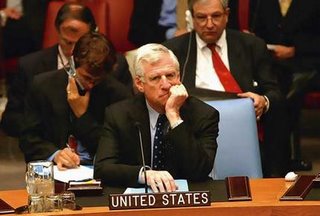A Nonjudgmental Presence...
 To the degree that we accept that through Christ we ourselves have been reconciled with God we can be messengers of reconciliation for others. Essential to the work of reconciliation is a nonjudgmental presence. We are not sent to the world to judge, to condemn, to evaluate, to classify, or to label. When we walk around as if we have to make up our minds about people and tell them what is wrong with them and how they should change, we only create more division. Jesus says it clearly, "Be compassionate just as your Father is compassionate. Do not judge;...do not condemn;...forgive" (Luke 6:36-37)
To the degree that we accept that through Christ we ourselves have been reconciled with God we can be messengers of reconciliation for others. Essential to the work of reconciliation is a nonjudgmental presence. We are not sent to the world to judge, to condemn, to evaluate, to classify, or to label. When we walk around as if we have to make up our minds about people and tell them what is wrong with them and how they should change, we only create more division. Jesus says it clearly, "Be compassionate just as your Father is compassionate. Do not judge;...do not condemn;...forgive" (Luke 6:36-37)In a world that constantly asks us to make up our minds about other people, a nonjudgmental presence seems nearly impossible. But it is one of the most beautiful fruits of a deep spiritual life and will be easily recognized by those who long for reconciliation.
--Henri Nouwen











